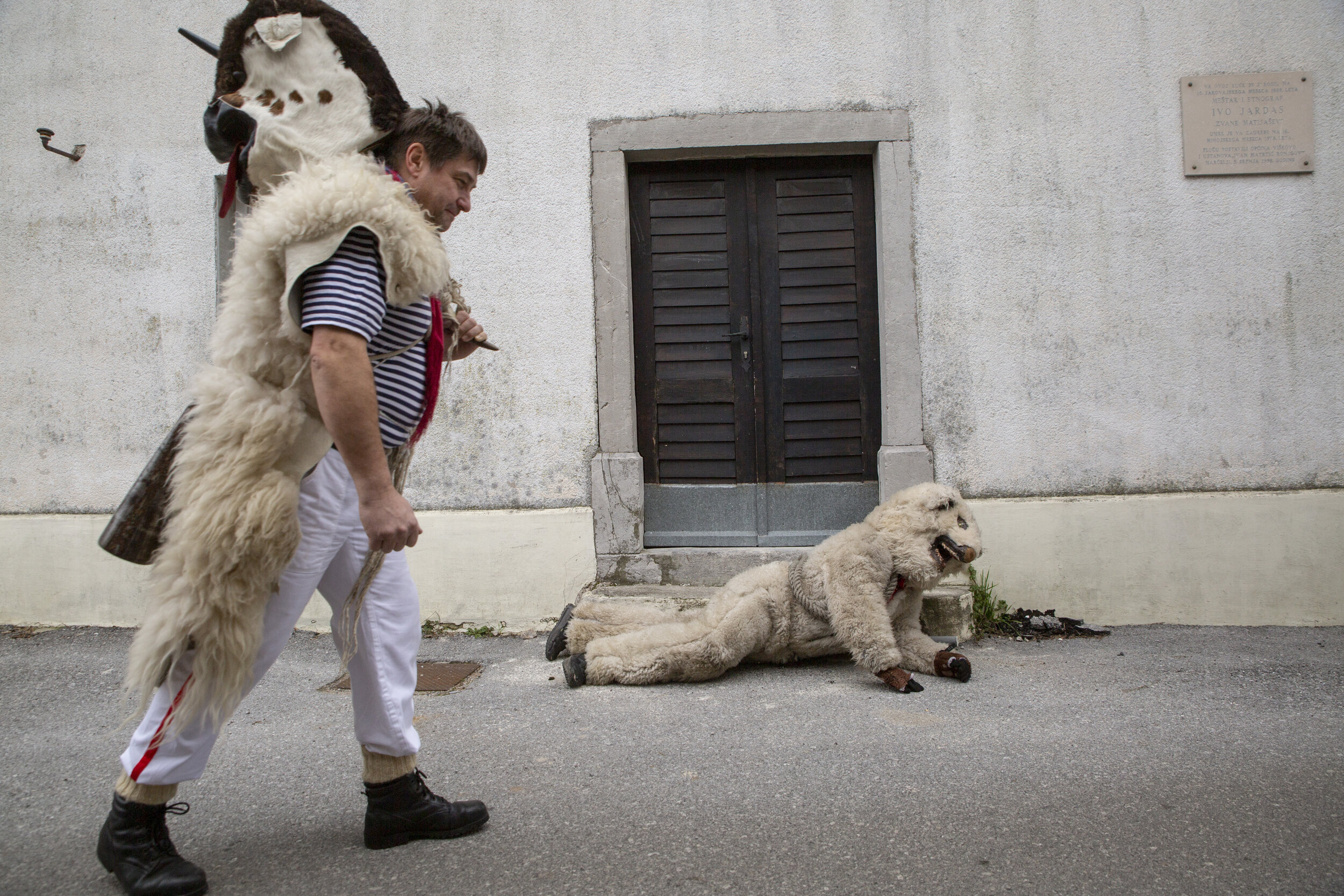
Halubajski zvončari, traditional bell ringers based on mythical creatures in Croatian folklore, begin their three-day journey of ringing bells around their waists while walking, stumbling or crawling through villages in the Halubje and Kastav region near Rijeka, Croatia before carnival, Sunday, Feb. 23, 2020.
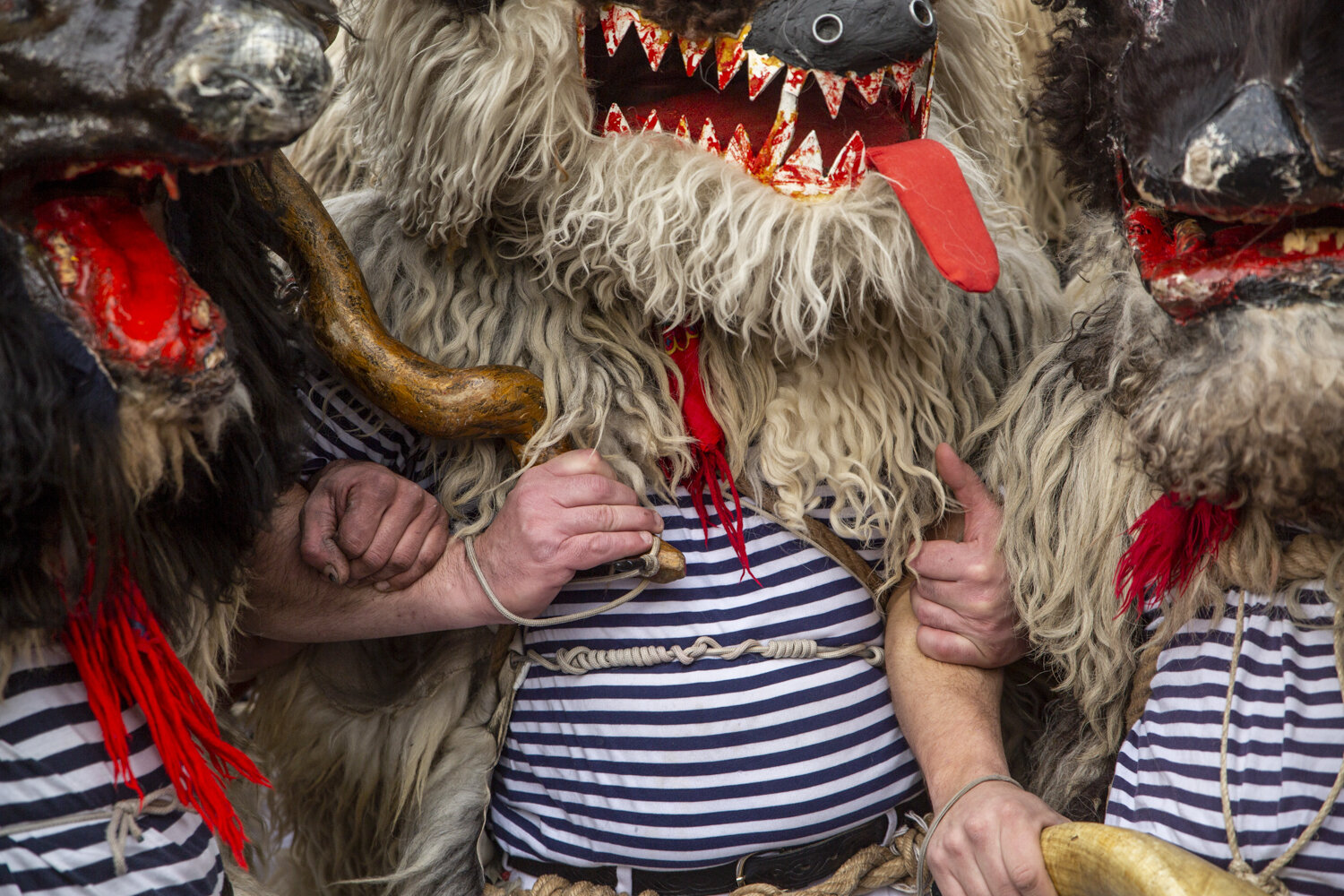
Though Carnival is celebrated throughout Croatia, this mask tradition from the Halubje region is recognized by UNESCO. Many nearby traditions have open-faced masks required by Roman rule so that participants could not conceal their identities, but these bellmen have maintained their full-coverage style throughout history.

This centuries-old walking route through dense woods, open fields, tiny villages and picturesque towns in the hills above Rijeka is rarely seen by outsiders.
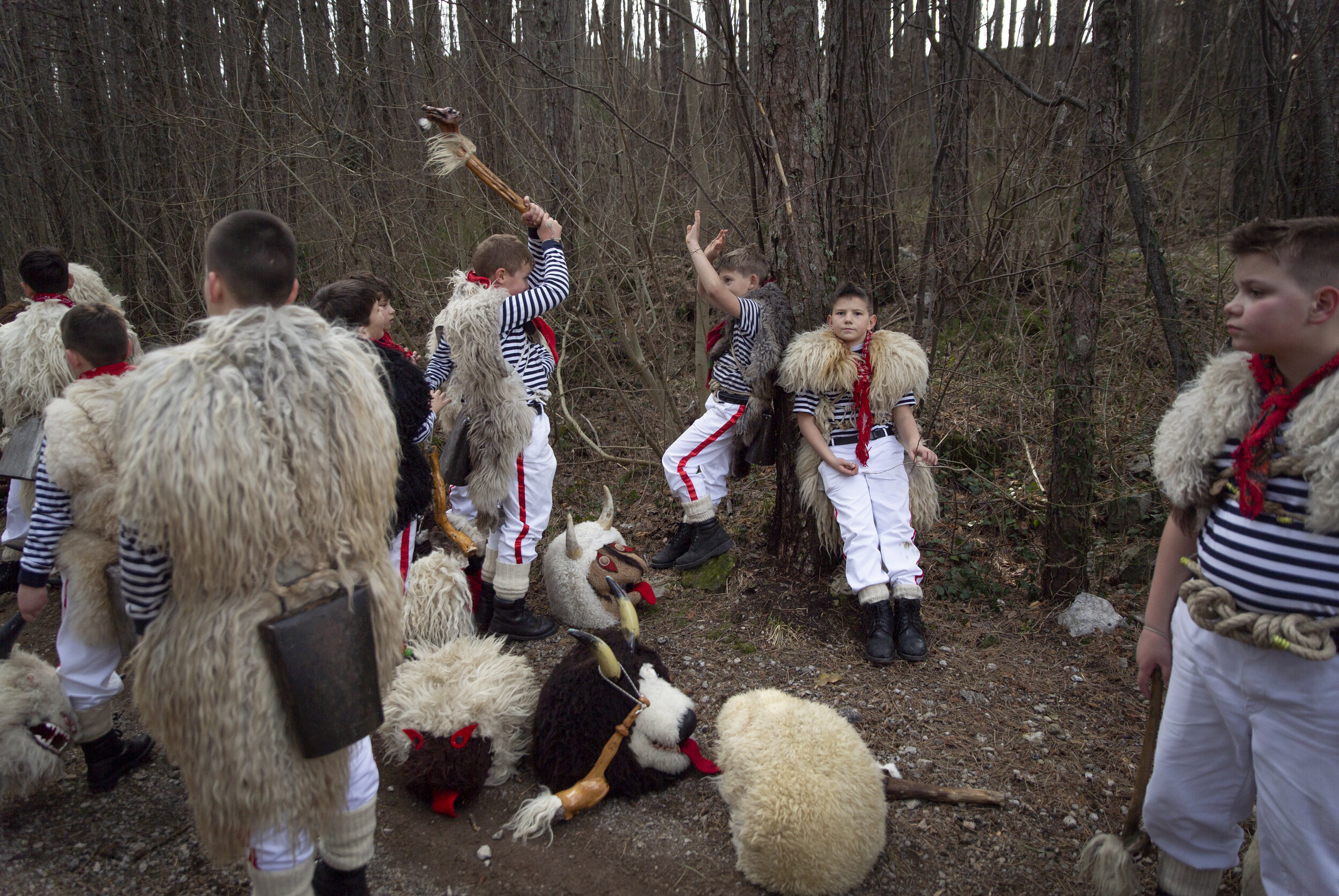
Young Halubajski zvončari take a break while walking in the woods. This custom, which dates back to pre-Christian times, is passed down to boys as young as 2 years old. The some 250 men who currently participate in these festivities hope to continue passing down the tradition for many more generations to come.

Older Halubajski zvončari, who have been participating in this custom since childhood, take off their masks to catch their breath after shaking the bells around their waists for several hours. The 12-hour or longer days of walking in sheepskin and heavy masks become tougher with age.
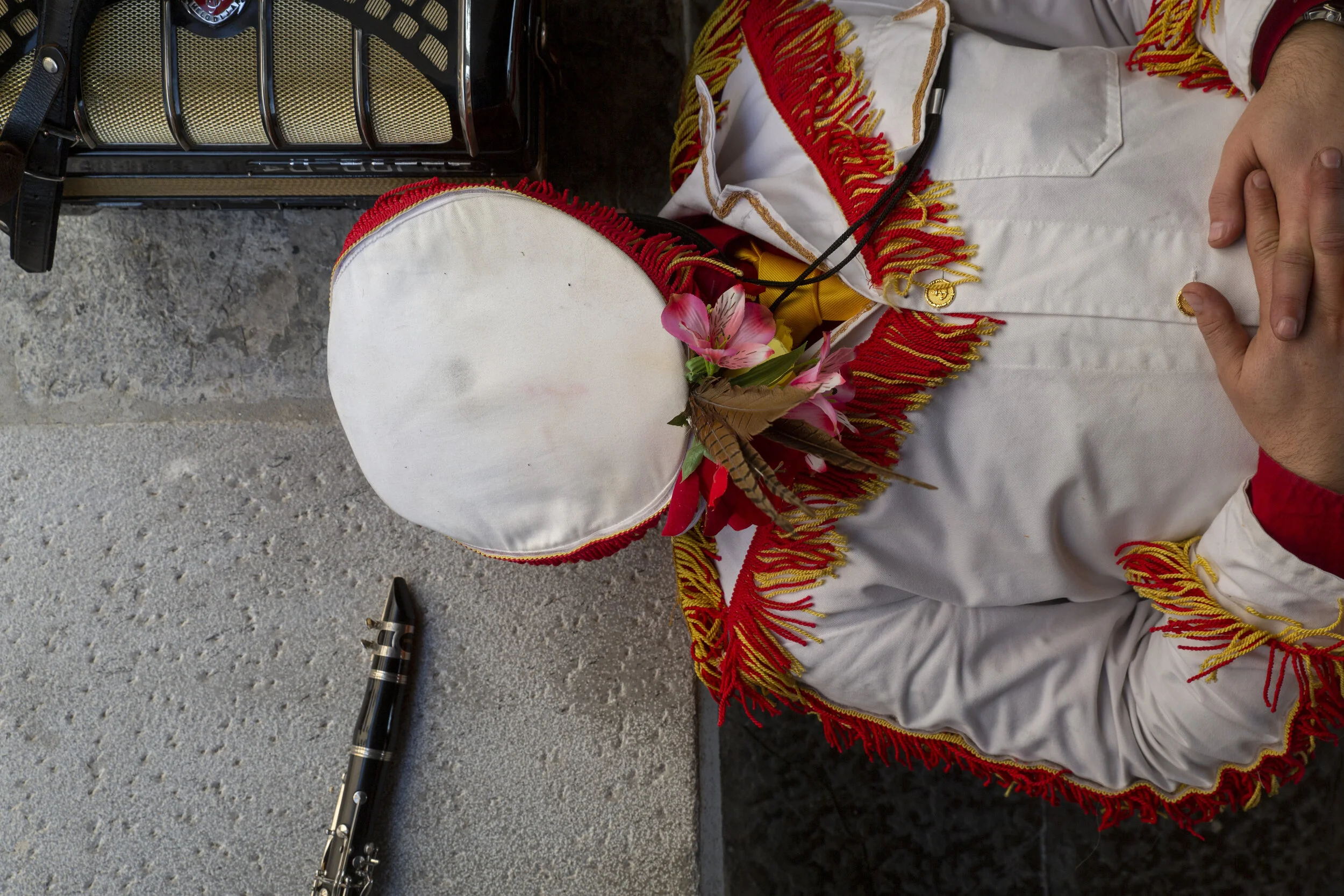
Exhausted, a Halubajski zvončari wrangler sleeps on a bench in Kastav, Croatia, a main stop on the second day of their journey.
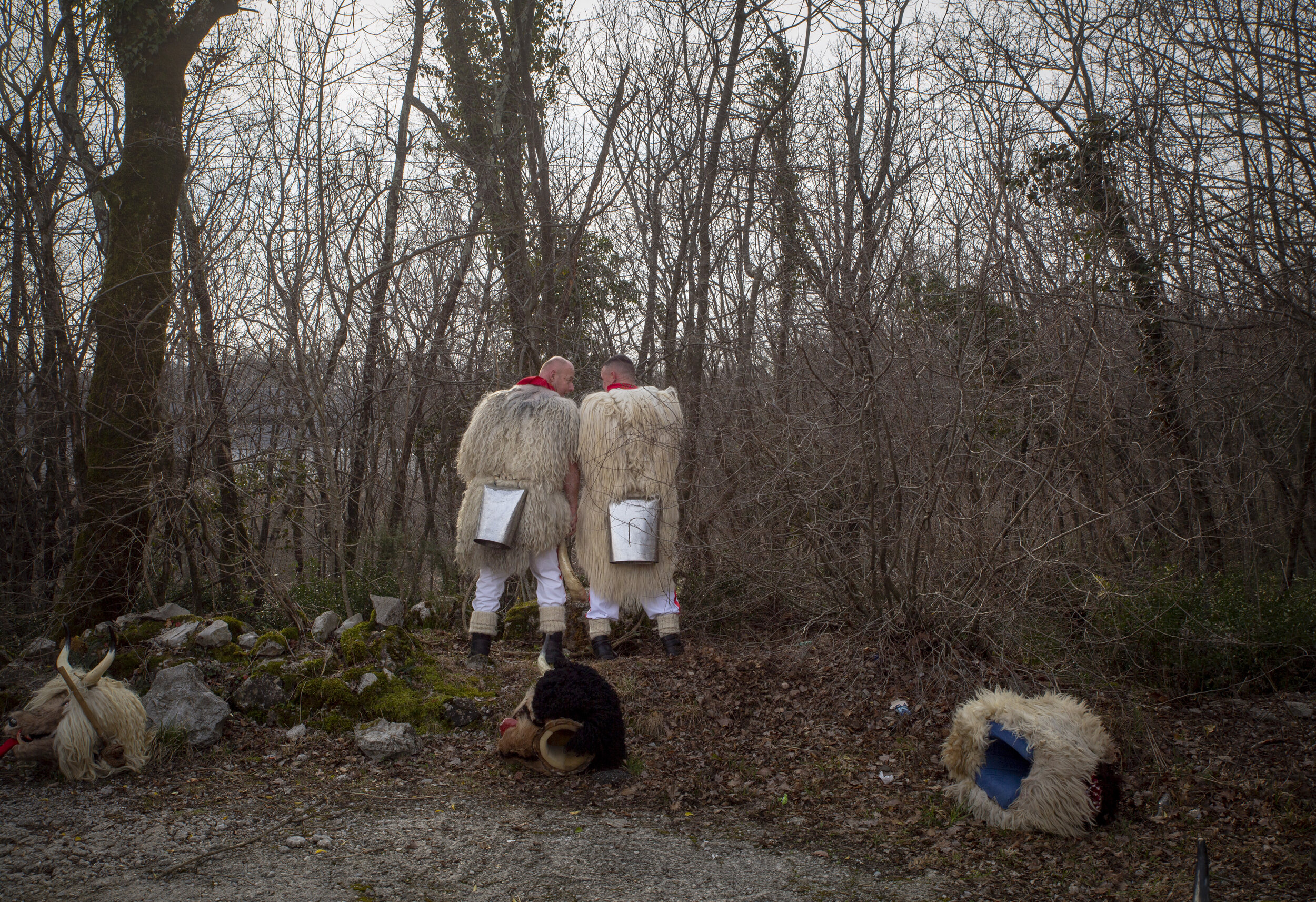
Men stop to pee in the woods in a rural area of the Halubje and Kastav region during their long days of walking, sometimes lasting more than 12 hours. While some other carnival masking traditions have allowed women to join in recent years, such as the celebrations in Slovenia, Halubajski zvončari remain men-only.

The zvončari stop for a break along the road above the coastal city of Rijeka. Rijeka is well known throughout Europe for its carnival celebrations, but revelers down below remain largely unaware of the vibrant pagan festivities taking place in the hills just beyond their tourist digs.
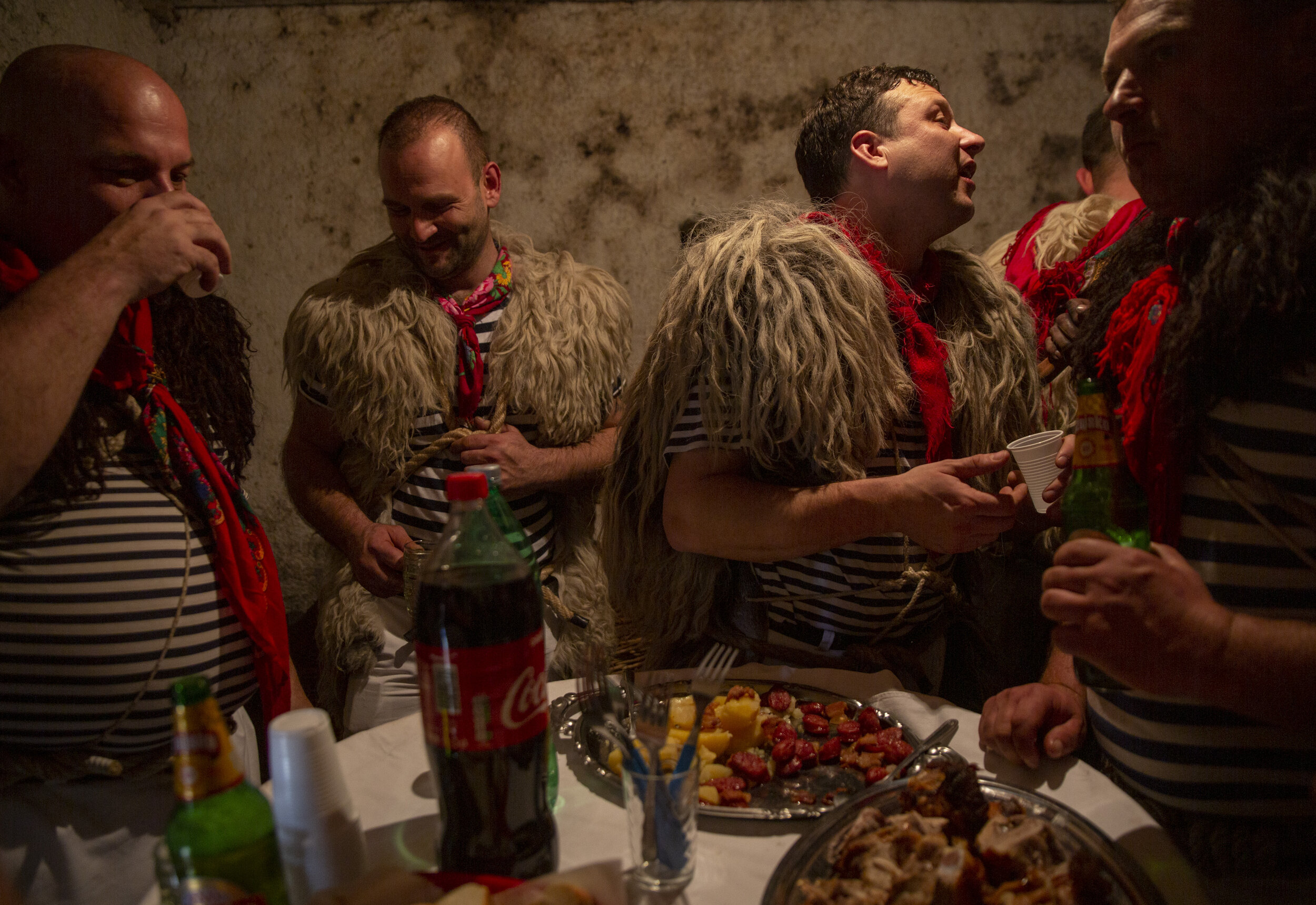
Throughout the region, Halubajski zvončari are invited into yards, homes and basements for food and rakija, a local homemade brandy. Many begin drinking alcohol at 7am before their walk begins.
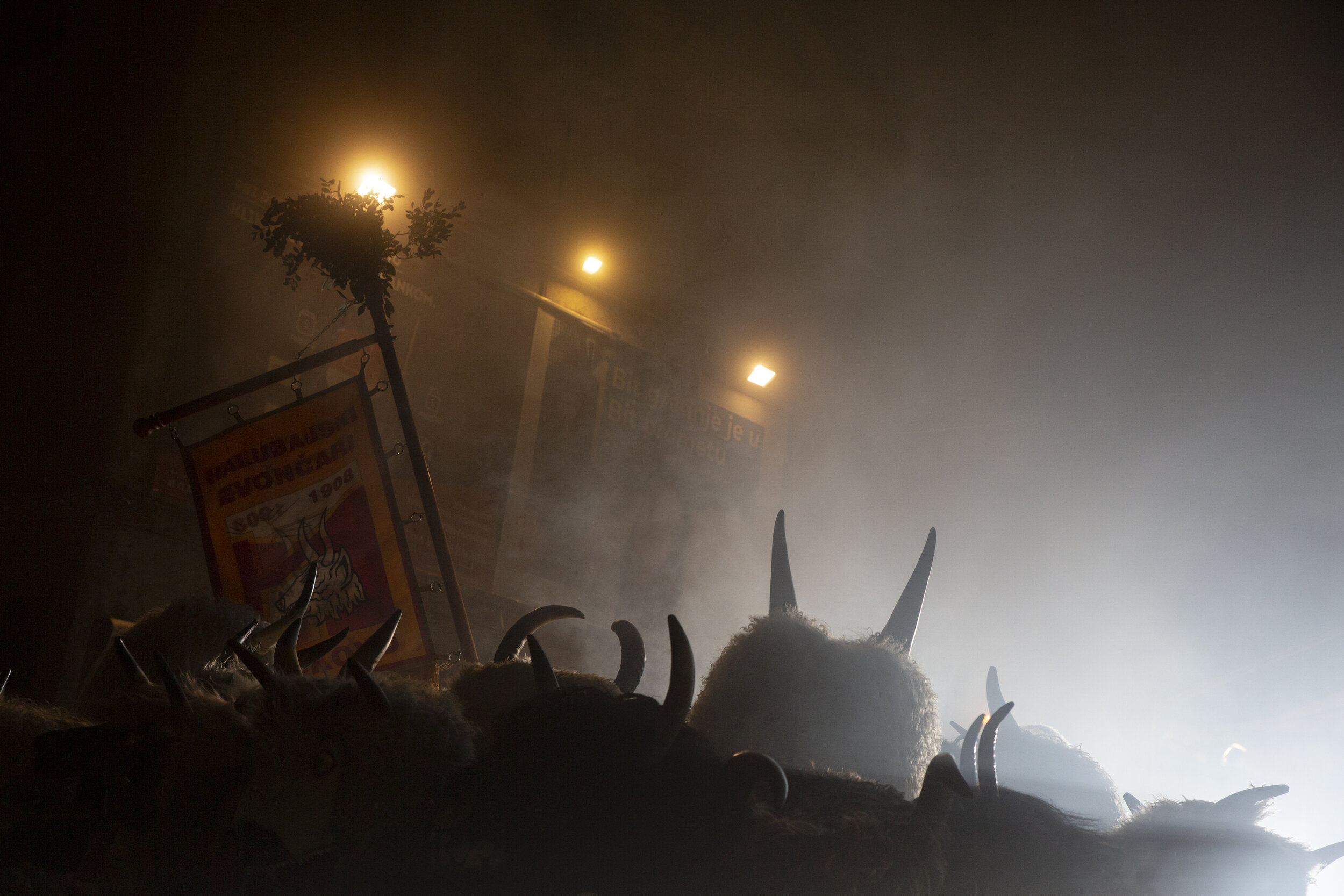
A cloud of fire and fog greet the Halubajski zvončari on the third night of their ritual.
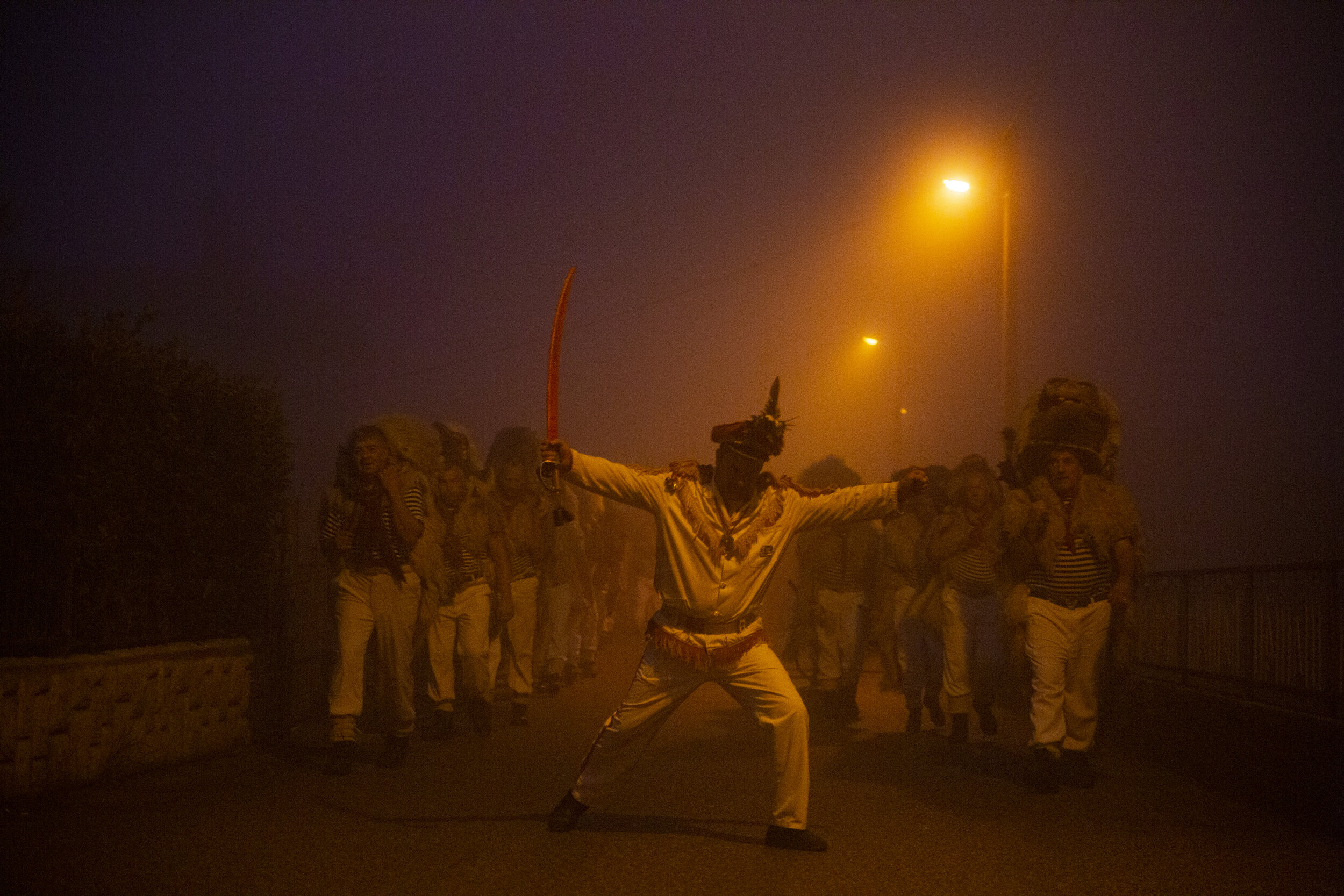
In the final stretch of their three-day tour of the region, Halubajski zvončari walk through a deep fog to the village of Viskovo, where they will burn an Effigy representing evil from the last year in order to move into a new year. This is known as Pust.
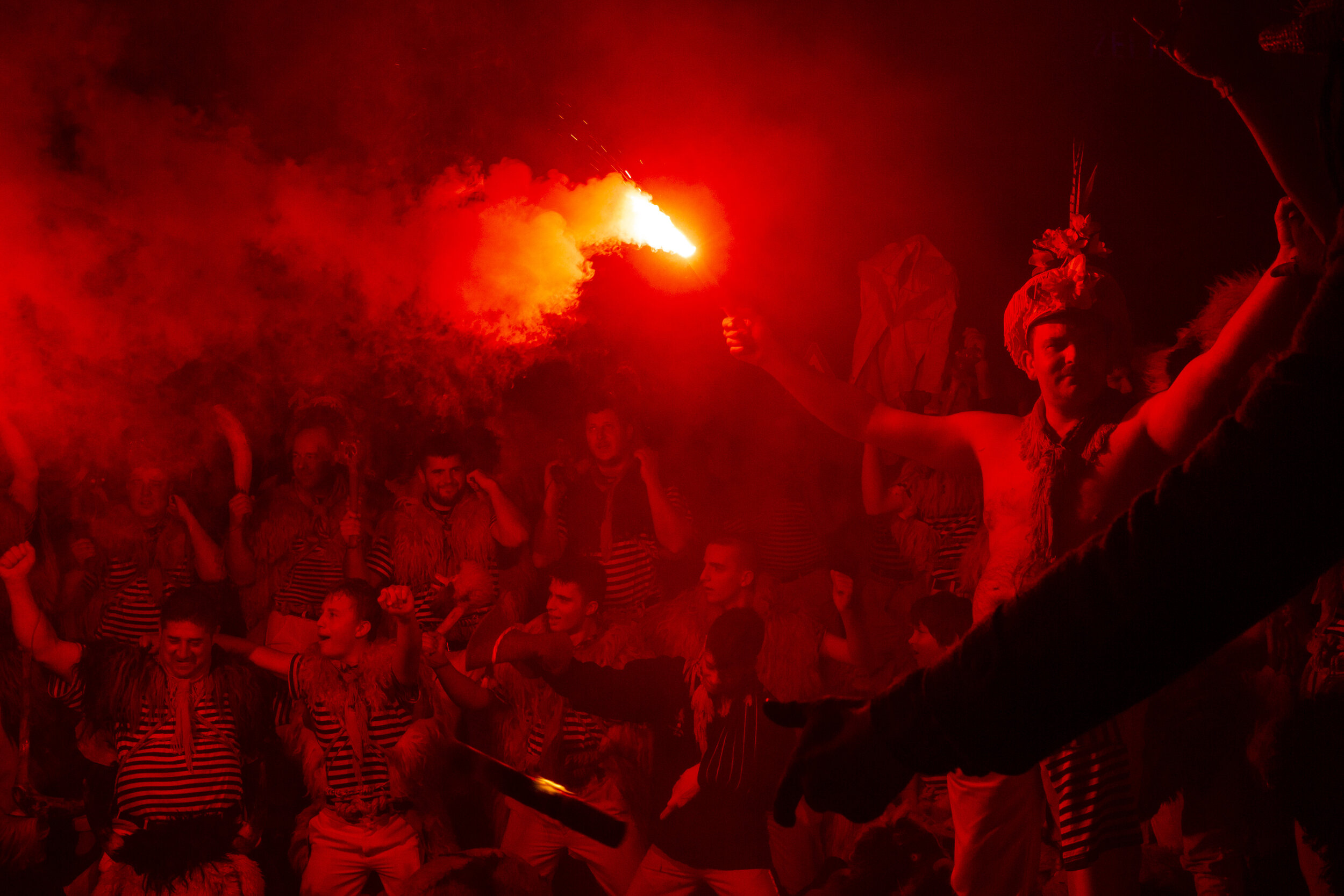
Though previously exhausted, the burning of the Effigy and lighting of fireworks brings ferocity back to the bellmen, who jump, yell and pump their fists in the air until the fire eventually dies out.
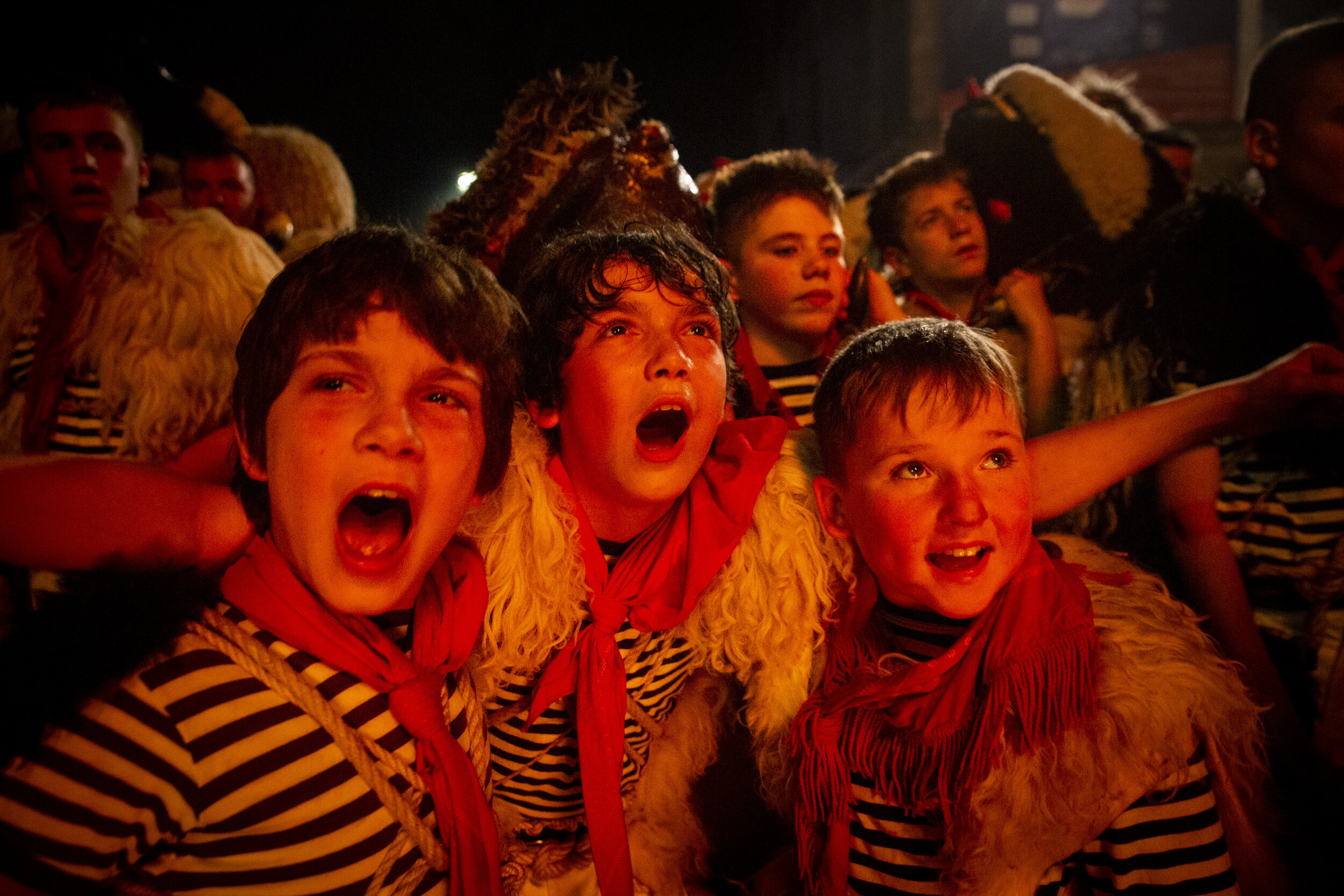
Young Halubajski zvončari scream in celebration as an Effigy burns on the final day of Carnival, Feb. 25, 2020. Through this three-day process, these boys are taught to embody masculine ideals of the region and to carry on their people’s history through the practice of bell ringing for years to come.
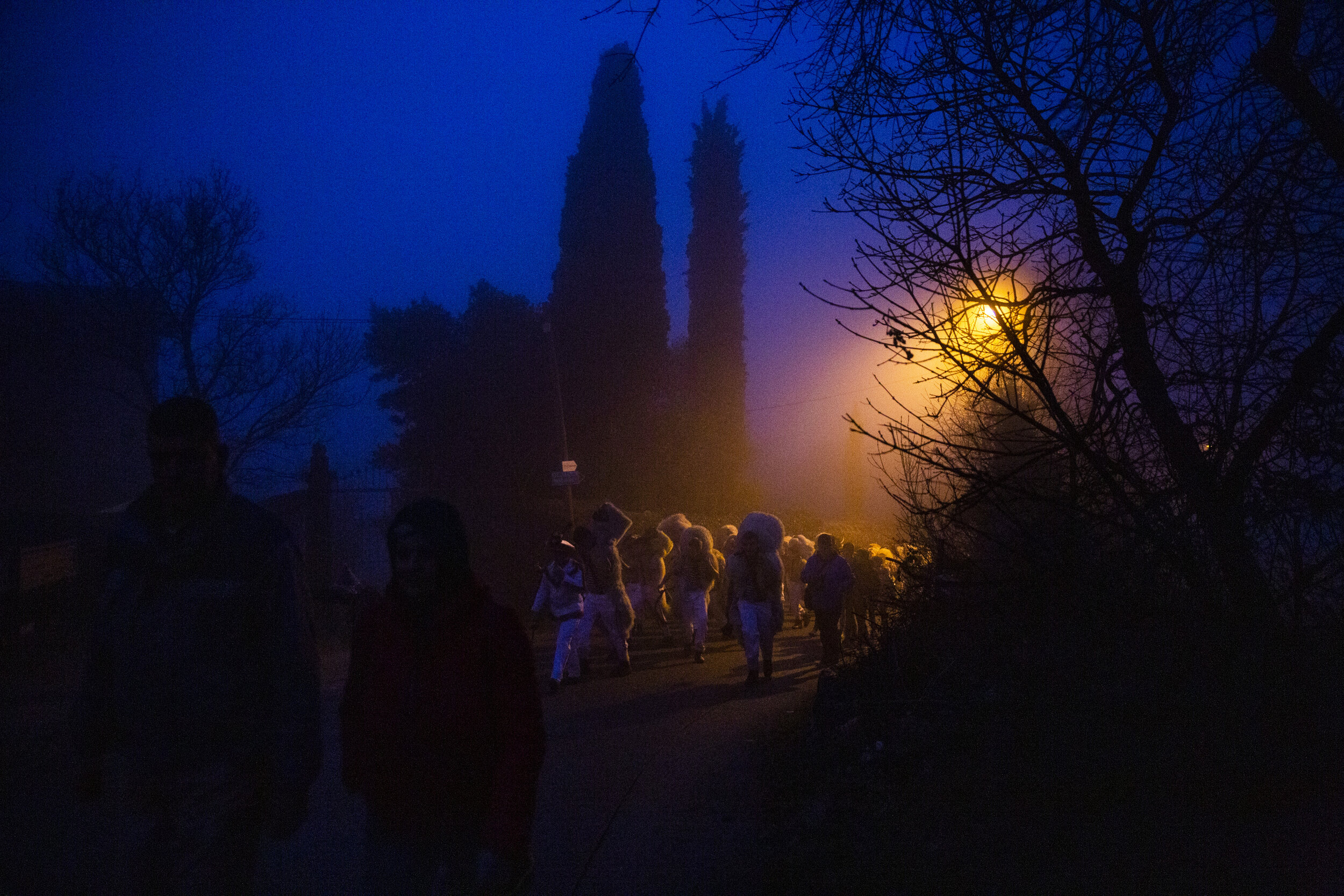
Carnival 2020 comes to an end.














Halubajski zvončari, traditional bell ringers based on mythical creatures in Croatian folklore, begin their three-day journey of ringing bells around their waists while walking, stumbling or crawling through villages in the Halubje and Kastav region near Rijeka, Croatia before carnival, Sunday, Feb. 23, 2020.
Though Carnival is celebrated throughout Croatia, this mask tradition from the Halubje region is recognized by UNESCO. Many nearby traditions have open-faced masks required by Roman rule so that participants could not conceal their identities, but these bellmen have maintained their full-coverage style throughout history.
This centuries-old walking route through dense woods, open fields, tiny villages and picturesque towns in the hills above Rijeka is rarely seen by outsiders.
Young Halubajski zvončari take a break while walking in the woods. This custom, which dates back to pre-Christian times, is passed down to boys as young as 2 years old. The some 250 men who currently participate in these festivities hope to continue passing down the tradition for many more generations to come.
Older Halubajski zvončari, who have been participating in this custom since childhood, take off their masks to catch their breath after shaking the bells around their waists for several hours. The 12-hour or longer days of walking in sheepskin and heavy masks become tougher with age.
Exhausted, a Halubajski zvončari wrangler sleeps on a bench in Kastav, Croatia, a main stop on the second day of their journey.
Men stop to pee in the woods in a rural area of the Halubje and Kastav region during their long days of walking, sometimes lasting more than 12 hours. While some other carnival masking traditions have allowed women to join in recent years, such as the celebrations in Slovenia, Halubajski zvončari remain men-only.
The zvončari stop for a break along the road above the coastal city of Rijeka. Rijeka is well known throughout Europe for its carnival celebrations, but revelers down below remain largely unaware of the vibrant pagan festivities taking place in the hills just beyond their tourist digs.
Throughout the region, Halubajski zvončari are invited into yards, homes and basements for food and rakija, a local homemade brandy. Many begin drinking alcohol at 7am before their walk begins.
A cloud of fire and fog greet the Halubajski zvončari on the third night of their ritual.
In the final stretch of their three-day tour of the region, Halubajski zvončari walk through a deep fog to the village of Viskovo, where they will burn an Effigy representing evil from the last year in order to move into a new year. This is known as Pust.
Though previously exhausted, the burning of the Effigy and lighting of fireworks brings ferocity back to the bellmen, who jump, yell and pump their fists in the air until the fire eventually dies out.
Young Halubajski zvončari scream in celebration as an Effigy burns on the final day of Carnival, Feb. 25, 2020. Through this three-day process, these boys are taught to embody masculine ideals of the region and to carry on their people’s history through the practice of bell ringing for years to come.
Carnival 2020 comes to an end.
